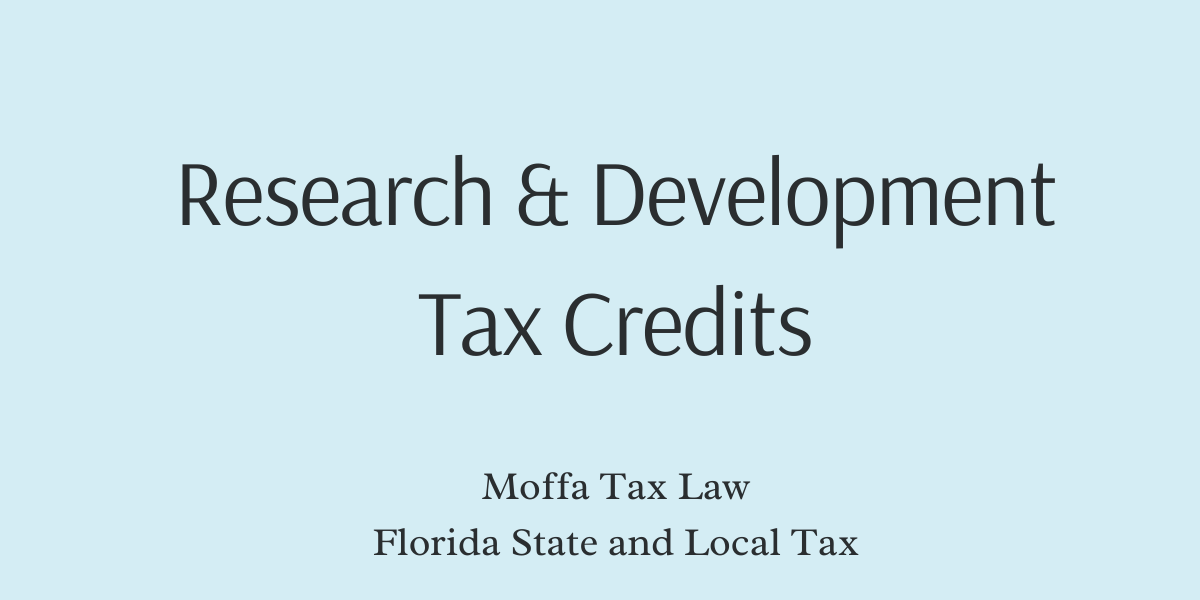NEWS & INSIGHTS


Recent updates in the Research & Development (R&D) tax credit landscape have introduced significant changes in compliance, enforcement, and litigation. As regulatory and procedural shifts continue to evolve, taxpayers must stay informed to optimize their credit claims while ensuring compliance with IRS requirements. This article provides an overview of the latest court cases, technical issues, IRS reorganization updates, and compliance changes impacting R&D tax credits.
I. Recent Court Cases Impacting R&D Credit
Several recent court decisions have shaped the landscape of R&D credit examinations and litigation. These cases address the scope of discovery, the application of the four-part test, and substantiation requirements.
A. Key Cases Influencing R&D Credit Studies
Little Sandy Coal Co. v. Comm’r. – Affirmed by the 7th Circuit, this case provides insights into qualifying research activities and the importance of documentation.
Intermountain Electronics, Inc. v. Comm’r. – Addresses disputes over eligible expenses.
Phoenix Design Group, Inc. v. Comm’r. – Highlights the IRS’s scrutiny of claimed research activities.
Meyer, Borgman & Johnson, Inc. v. Comm’r. – 8th Circuit decision clarifying substantiation requirements.
Moore v. Comm’r. – Confirms the IRS’s position on documentation standards for R&D credit claims.
B. Cases Limiting Scope of Discovery or Trial Items
Kapur v. Commissioner – Examines restrictions on discovery in R&D litigation.
Feller v. Commissioner – Addresses the admissibility of certain tax credit calculations.
Conrad Industries, Inc. v. Commissioner – A recent Tax Court case with implications for substantiating business component claims.
C. Cases to Watch
J.G. Boswell Company v. Commissioner – Ongoing litigation regarding the classification of research expenditures.
Kyocera AVX Component Corporation v. U.S. – Federal District Court case involving disputed R&D credit methodologies.
II. Emerging Technical Issues in R&D Credit
Taxpayers continue to face challenges in satisfying R&D credit requirements. The IRS has emphasized the following issues:
A. Statistical Sampling
IRS Position on Validity – Rev. Proc. 2011-42 provides guidance, but IRS scrutiny of sampling methodologies is increasing.
Employee vs. Project-Based Sampling – IRS examinations often require clear alignment between sampled data and business components.
B. Business Component Classification
Defining Business Components – Section 41(d)(2) specifies that business components include products, processes, software, techniques, formulas, or inventions used in trade or business.
Challenges in Substantiation – The IRS is requiring more detailed documentation to link expenses to specific business components.
C. Substantiation Requirements
Increased Focus on Documentation – IRS expects robust records, including project-based expense tracking and contemporaneous documentation.
Use of Surveys and Testimony – Taxpayers may supplement documentation with interviews and direct evidence but must be prepared for IRS scrutiny.
III. IRS Reorganization and Section 174 Guidance Updates
A. IRS Structural Changes
Reorganization of the Passthroughs and Special Industries (PSI) Office – The IRS has divided PSI into two divisions:
One focused on partnerships, S corporations, trusts, and estates.
Another handling energy-related tax credits and incentives.
Impact on R&D Credit Enforcement – The reorganization is expected to result in increased audits and specialized guidance.
B. Section 174 Guidance Updates
Key IRS Notices:
Notice 2023-63 and Notice 2024-12 – Address procedural and regulatory changes to research expenditures.
Revenue Procedure 2024-23 – Provides automatic accounting method changes for R&D expenses.
Revenue Procedure 2025-8 – Clarifies treatment of specified research expenditures (SREs) for 2022-2024.
IV. Changes to Form 6765 Compliance
The IRS has introduced modifications to Form 6765 (Credit for Increasing Research Activities) to enhance compliance and data accuracy.
A. New Controlled Group Reporting Requirements
Taxpayers must now disclose controlled group structures in greater detail.
B. New Sections on Form 6765
Section E: Expands reporting on business components, officer wages, and acquisitions/dispositions.
Section G: Introduces new classification categories for business components and wage details.
ASC 730 Directive QREs – Requires additional disclosures for research expenses under the Accounting Standards Codification (ASC) 730 framework.
V. Conclusion
The evolving landscape of R&D tax credits presents significant compliance challenges for taxpayers. Recent court decisions, IRS procedural updates, and expanded Form 6765 reporting requirements underscore the need for robust documentation and strategic planning. Businesses should closely monitor these developments to ensure compliance and optimize their R&D credit claims.
© 2025 Jeanette Moffa. All Rights Reserved.
Share
Additional Articles by the SALTy Orange at Moffa Tax Law:
NEWS & INSIGHTS Inside the FTA’s May 2025 Committee Report: What State Tax Officials Are Watching Inside the FTA’s May…
NEWS & INSIGHTS State Conformity with the BBA Partnership Audit Rules: Where Are We in 2025? State Conformity with the…
How Florida’s Sales Tax Auditors Target Convenience Stores (and What You Can Do About It)”
NEWS & INSIGHTS How Florida’s Sales Tax Auditors Target Convenience Stores (and What You Can Do About It) Florida Department…

Jeanette Moffa, Esq.
(954) 800-4138
JeanetteMoffa@MoffaTaxLaw.com
Jeanette Moffa is a Partner in the Fort Lauderdale office of Moffa, Sutton, & Donnini. She focuses her practice in Florida state and local tax. Jeanette provides SALT planning and consulting as part of her practice, addressing issues such as nexus and taxability, including exemptions, inclusions, and exclusions of transactions from the tax base. In addition, she handles tax controversy, working with state and local agencies in resolution of assessment and refund cases. She also litigates state and local tax and administrative law issues.


